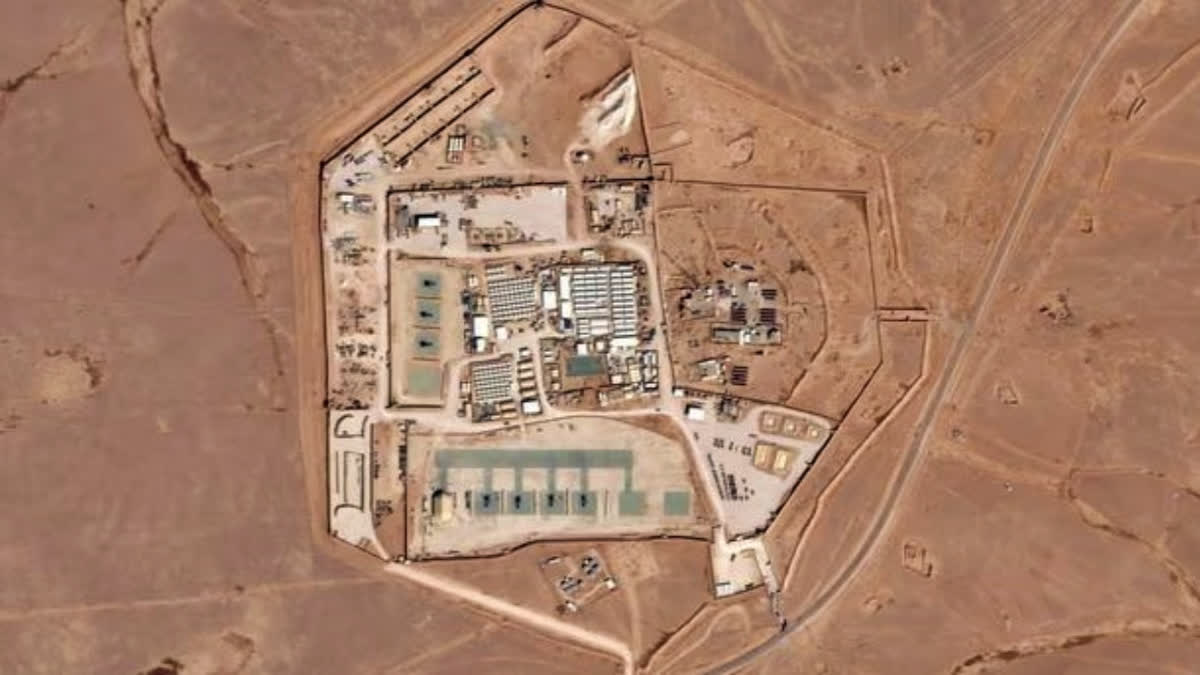New Delhi: For the first time since the Israel-Hamas war erupted in October last year, three American soldiers were killed in a drone attack on a US base in northeastern Jordan near the border with Syria. According to reports, more than two dozen other soldiers were also injured in the attack that was carried out on Sunday.
Confirming this, the US Central Command stated in a press release that the casualties occurred “from a one-way attack UAS (unmanned aerial system) that impacted at the base in northeast Jordan, near the Syria border”. The Iraq-based Islamic Resistance of Iraq (IRI), believed to be backed by Iran, has claimed responsibility for the attack. Tehran, however, has denied its involvement in the attack. Following the attack, US President Joe Biden vowed revenge and stated, “We shall respond.” He said that the US “will hold all those responsible to account at a time and in a manner of our choosing”.
So, what exactly is the IRI?
The term IRI encompasses pro-Iran Shia Islamist insurgent factions in Iraq. It is characterised as a collective label or network representing various ideologically aligned groups supported by Iran, rather than being viewed as a singular entity. The groups in this network include the Kata’ib Hezbollah, Harakat Hezbollah al-Nujaba, Asa’ib Ahl al-Haq and Kata’ib Sayyid al-Shuhada.
The Kata’ib Hezbollah (Battalions of the Party of God) is a radical Iraqi Shia paramilitary group, which used to be part of the Popular Mobilisation Forces (PMF), an Iraqi state-sponsored umbrella organisation comprising approximately 67 different armed factions fought against the Islamic State (IS) terrorist outfit.
During the Iraq War (2003–11), the group fought against the US-led coalition forces. It has been active in the war against IS in Iraq between 2013 and 2017 and the Syrian civil war since 2011. The group was commanded by Abu Mahdi al-Muhandis until he was killed in a US drone attack in 2020. Thereafter, he was replaced by Abdul Aziz al-Muhammadawi (Abu Fadak), as the new leader of the PMF. The KH seeks to establish an Iran-aligned government in Iraq, expel American forces from the country and advance the regional and international interests of Iran in Iraq and the region.
The Harakat Hezbollah al-Nujaba (Movement of the Party of God’s Nobles) is a radical Iraqi Shia paramilitary group that is especially active in Syria and Iraq. It was established in 2013 by Akram al-Kaabi to support Syrian President Bashar al-Assad against Islamist rebels. The group is supported by the Islamic Revolutionary Guards Corps (IRGC) of Iran, which provides the funding, weapons, and training of its members. It used to be part of Iraq’s PMF until 2020 when it joined the IRI. The Nujaba Movement adopts the ideology of the Islamic Revolution in Iran and regards Iran’s Supreme Leader Ali Khamenei as its supreme leader.
The Asa’ib Ahl al-Haq (League of the Righteous), also known as the Khazali Network, is a radical Iraqi Shia political party and paramilitary organisation active in the Iraqi insurgency and Syrian Civil War. During the Iraq War, it was known as Iraq’s largest “Special Group” (the American term for Iranian-backed Shia paramilitaries in Iraq), and, from 2016 until 2020, used to be part of the PMF cooperating with the Iraqi government in its fight against the IS. The Asa’ib Ahl al-Haq is funded, trained, equipped and guided by IRGC and the Iran-backed Hezbollah in Lebanon. Members of Asa’ib Ahl al-Haq, as part of the PMF, receive Iraqi government salaries after the PMF units were officially integrated into Iraqi security forces in 2018.
The Kata’ib Sayyid al-Shuhad (Battalions of the Master of Martyrs) is also a radical Iraqi Shia militia formed in 2013. Its stated mission is to protect “Shia shrines across the globe”, preserve “Iraqi unity” and “put an end to the sectarian conflict”. The Kata’ib Sayyid al-Shuhad is also funded, trained and equipped by the IRGC and Hezbollah. The group has been described as an Iranian proxy and is one of the original militias that formed the PMF in 2014.
Why are these Iran-backed Shia groups getting involved in the war in Gaza between Israel and the Palestinian Sunni Islam Hamas militant group?
